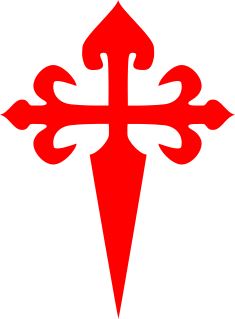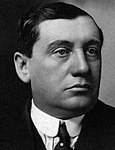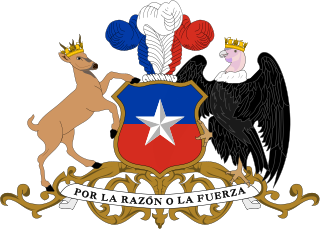
Juan Antonio Ríos Morales was a Chilean political figure, and President of Chile from 1942 to 1946, during the height of World War II. He died in office.

The Socialist Party of Chile is a political party within the centre-left Nueva Mayoría. Its historic leader was President of Chile Salvador Allende, who was deposed in a coup d'état by General Pinochet in 1973. Twenty-seven years later, Ricardo Lagos Escobar represented the Socialist Party in the 1999 presidential elections. He won 48.0% in the first round of voting and was elected with 51.3% in the second round. In the legislative elections on 16 December 2001, as part of the Coalition of Parties for Democracy, the party won 10 out of 117 seats in the Chamber of Deputies and 5 out of 38 elected seats in the Senate. After the 2005 elections, the Party increased its seats to 15 and 8, respectively. In the 2009 elections, it retained 11 Congressional and 5 Senate seats.

The Concertación was a coalition of center-left political parties in Chile, founded in 1988. Presidential candidates under its banner won every election from when military rule ended in 1990 until the conservative candidate Sebastián Piñera won the Chilean presidential election in 2010. In 2013 it was replaced by New Majority coalition.
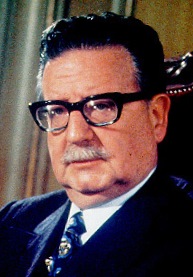
Presidential elections were held in Chile on 4 September 1970. Salvador Allende of the Popular Unity alliance won a narrow plurality in the public vote, before having his victory confirmed by a Congressional vote after the Christian Democrats voted in favour of his candidacy.
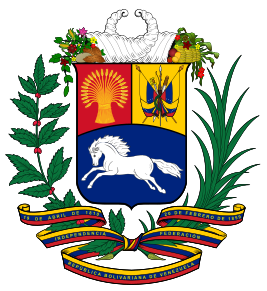
Elections in Venezuela are held at a national level for the President of Venezuela as head of state and head of government, and for a unicameral legislature. The President of Venezuela is elected for a six-year term by direct election plurality voting, and is eligible for re-election. The National Assembly (Asamblea Nacional) has 165 members (diputados), elected for five-year terms using a mixed member majoritarian system. Elections also take place at state level and local level.
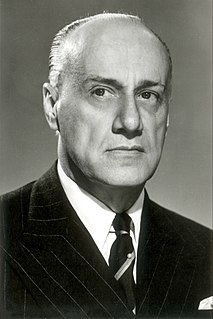
Presidential elections were held in Chile on 4 September 1958. The result was a victory for Jorge Alessandri, who ran as an independent.
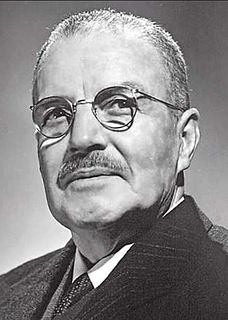
Presidential elections were held in Chile on 4 September 1952. The result was a victory for Carlos Ibáñez del Campo, who ran as an independent.

Presidential elections were held in Chile on February 1, 1942. The result was a victory for Juan Antonio Ríos of the Radical Party, who received 56% of the vote.

Presidential elections were held in Chile on 25 October 1938. The result was a narrow victory for Pedro Aguirre Cerda of the Radical Party, who received 50.5% of the vote.

Presidential elections were held in Chile on September 4, 1946. The result was a victory for Gabriel González Videla of the Radical Party, who received 40% of the public vote and 75% of the Congressional vote.

Presidential elections were held in Chile on 4 October 1931. The result was a victory for Juan Esteban Montero of the Radical Party, who received 64% of the vote.

Presidential elections were held in Chile on 22 May 1927, following the resignation of President Emiliano Figueroa. The result was a victory for Interior Minister Carlos Ibáñez del Campo, who ran as an independent and received 98% of the vote.

Presidential elections were held in Chile on 22 October 1925. They were the first direct elections in the country's history and the first to be held under the new 1925 constitution. The result was a victory for Emiliano Figueroa, who received 71% of the vote.
The Liberal Party, commonly known as the Blue Party was a political party in Paraguay, ruling the country for most of the period between 1904 and 1940.

Fernando Alessandri Rodríguez was a Chilean political figure, candidate of the centre-right in Chile's 1946 presidential election. He was the son of Arturo Alessandri, who was president from 1920 to 1925 and again from 1932 to 1938, and brother of Jorge Alessandri Rodríguez, who was president from 1958 to 1964.

The Presidential Republic is the period in the History of Chile spanning from the approval of the 1925 Constitution on 18 September 1925, under the government of Arturo Alessandri Palma, to the fall of the Popular Unity government headed by the President Salvador Allende on September 11, 1973. The period spans the same time as the "Development inwards" period in Chilean economic history.

General elections were held in Tunisia on 3 November 1974 to elect a President and Chamber of Deputies. At the time the country was a one-party state with the Socialist Destourian Party (PSD) as the sole legal party. Its leader, Habib Bourguiba, was the only candidate in the presidential election; as the chairman of the PSD, he was the only candidate for president. In the Chamber election, the PSD put forward a single list of candidates in each constituency. Voter turnout was 96.8% in the Chamber election.

General elections were held in Mexico on 4 July 1976. José López Portillo was the only candidate in the presidential election, and was elected unopposed. In the Chamber of Deputies election, the Institutional Revolutionary Party won 195 of the 237 seats, as well as winning all 64 seats in the Senate election. Voter turnout was 64.6% in the Senate election and 62.0% in the Chamber election.

Parliamentary elections were held in Romania on 17 March 1985. The Front of Socialist Unity, dominated by the Romanian Communist Party and including other mass organisations, was the only organisation that contested the election. No prospective candidate could run for office without the Front's approval. The Front won all 369 seats in the Great National Assembly. These would be the last single-party elections held in Romania; the Communists would be overthrown four years later.



